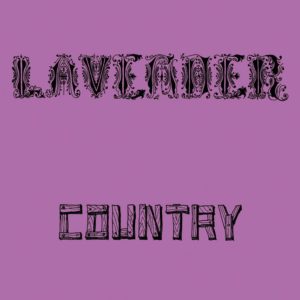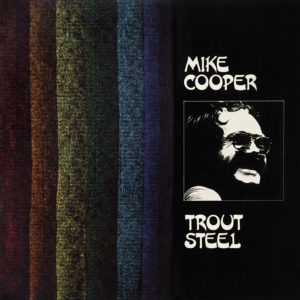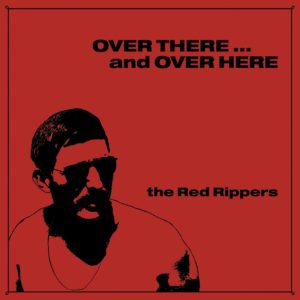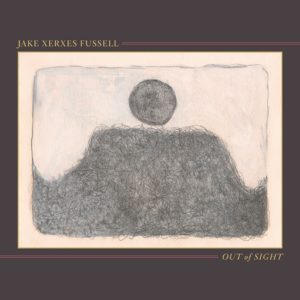Broken Stay Open Sky is the fourth full-length album by Red River Dialect, and their first for Paradise of Bachelors. The London-based band (with Cornish roots) brings a windswept energy and daylight to a contemplative, gorgeously rendered suite of songs about inhabiting the landscape, and our bodies, in joy and pain alike. Informed by songwriter David Morris’s spiritual practice, and recorded largely live in the studio, this is the band’s most ambitious and emotionally affecting work to date: atmospheric but deeply rooted, equally concerned with investigating the concrete and the cosmic, both quiet details of the everyday and looming matters of faith.
Highlights
- Deluxe 140g virgin vinyl LP features heavy-duty matte board jacket, full-color inner sleeve, lyrics, and high-res Bandcamp download code. CD edition features matte gatefold jacket.
- RIYL Talk Talk, Tindersticks, Tim Hardin, Fairport Convention, Red House Painters, Mighty Baby, Michael Chapman, James Elkington, Steve Gunn, The Weather Station, Nathan Salsburg, Joan Shelley.
- Artist page/tour dates
Physical format music purchases from the PoB webstore and Bandcamp include digital downloads when feasible. Some, but not all, pre-2023 vinyl pressings also include a download coupon. For digital preorders and high-resolution digital downloads, please visit our Bandcamp page.
Tracklist
A1. “Juniper / The View” 6:55
A2. “Kukkuripa” 7:11
A3. “Open Sky (bell)” 4:01
B1. “Aery Thin” 6:30
B2. “Cinders” 6:48
B3. “Gull Rock” 5:55
B4. “Campana” 4:47
Catalog Number/Release Date
PoB-039 / February 2, 2018
Purchase from PoB above or support via
- Bandcamp (LP/CD/digital)
- Other Options (LP/CD/download/stream)
- Local Record Stores
More from Red River Dialect
-

Red River Dialect: Broken Stay Open Demos
$7.00Weight N/A FORMAT Album Narrative
- Photo by Hannah Rose Whittle.
- Photo by Hannah Rose Whittle.
- Photo by Emily Ford.
- Photo by Hannah Rose Whittle.
Morris shares the following testimony about how these recordings came about.
*
When writing the last Red River Dialect album, which was called Tender Gold and Gentle Blue (2015, PoBDistro-07), my everyday was infused with a magnificent, radiant sadness. A sudden space of loss had opened up and swallowed all sorts of exhausting but addictive inclinations: to hunt for volatility, nurture delusions and hide in distractions. Eventually these waves of sad-joy began to subside and I found myself back on familiar ground with a new understanding of what I was seeking: freshness, movement and vibrancy. I was learning how to feel perky and how to ride on the wind; the one that is called lungta in Tibetan (and is also a horse). I looked for this energy in chords, rhythms and words. When my friend, the great songwriter Joan Shelley, invited me out on a UK tour to play an opening set, I recognised it as an opportunity to develop these new songs and to try them out at shows. A couple of them took shape before the tour, but most followed after. Hearing Joan, Nathan Salsburg and Glen Dentinger play and sing every night brought me many glimpses of the fresh genuineness I was seeking.
I tried to turn those glimpses into songs. I wanted to make a whole album about lungta, to be called Windhorse, after the English translation of the term. It was also going to be a concept album about bells of all kinds. I used to ring church bells when I was a child in the English change ringing style. I have strong memories of the smell of old wood and damp stone, the delirious cacophony of the six bells, the sight of the dancing ropes and the fear of breaking the stay. The stay is the small piece of wood upon which the heavy bell comes to rest in an upright position when the ringing is done. If the bell is brought to rest too roughly the stay may be broken, causing the bell to flail around its axle and whipping the rope up into the tower. The leader of our group of campanologists, a Cornish stone-hedger by trade, told tales of ringers who had been whipped up along with the rope and killed, and my experience of ringing became fused with this fear of losing control. The coil of coloured wool around the portion of the rope that you grip is called the sally, a name derived from Latin and Old French words for leaping, salire and sailie respectively, and related to the English somersault and salmon, the name the Romans gave to the fish that leaps.
As I wrote the songs, this attempt at conceptual coherency started to crumble. Half-familiar sadnesses and new-old confusions poked through the rubble. For a time I tried to keep them out. Eventually I gave up, knowing that to treat these experiences like enemies or unwelcome strangers was dishonest and stale. And so each song that makes up this new album called Broken Stay Open Sky is a coming together of pain and love, selves and others, embraced together in the same broken heart, which is moving-joy and still-sad. The cover photograph portrays Gull Rock, as seen from Trebarwith Strand in North Cornwall. Once I had seen this image, the work of Dayna Cowper, it would not leave my imagination, and I hoped it could become a part of this album. Initially I wanted to conceal it inside the album’s sleeve; a double-lurking cave on an inside horizon of childhood memories. But it would not stay hidden, and strangely it shone through every other proposal for the cover. So now Gull Rock sits there like the hub shared by thirty spokes:
Thirty spokes converge at the hub, but emptiness completes the wheel. Chapter 11, Tao Te Ching
I am glad that this album is not entirely what I intended it to be, and even gladder for the companionship of the band who articulate these songs into a real-shared living. Simon Drinkwater, Coral Rose, Ed Sanders, Robin Stratton and I had spent a few years playing mostly acoustically, without drums or percussion. In the summer of 2016 we had a fortuitous meeting with drummer Kiran Bhatt, who then joined the band, allowing us to get a little more electric and dynamic once more. Over the summer we worked up these songs, recording over three days in October 2016 with our friend Jimmy Robertson at the console. We set up as a live band in the room, which was not a big room, and so there is a merging of our playing into each other’s microphones, a bleeding that even Pro Tools cannot efface without taking the song away too. There were, however, a handful of overdubs, a couple of tricks, and a little bit of corruption. There was a shadowed rock like a cave in the sky, from which the wheel of a ringing bell turned. If I could break into song, would I break my stay?
David Morris
Streaming
Acknowledgments
There’s always a hint of sorrow to Red River Dialect, a feeling of unworthiness in the face of beauty. [The] first single already feels like a burden lifted. “Kukkuripa” radiates a beaming light. The band stretches out a rhapsodic melody like a ribbon chasing the wind, the fabric undulating over a thumping drone of violin and low-lying guitars.
– Lars Gotrich, NPR Music
8/10. Gentle, thoughtful compositions that mix straightforward observation with naturalistic imagery and philosophical inquiry.
– Uncut
Frenzied and fantastic… a radical, thundering realm. Alternates white noise with sweet, intricate harmonies, and an unrelenting pressure between the two. Songwriter David Morris credits his spiritual practice as the inspiration for these sweeping, massive songs that incorporate old world folk and the tension of noise and drone music with equal force.
– Uproxx
4 stars. Red River Dialect’s tempo is beatific, fingerpicked guitar and violin cresting sweetly, though some fervent moments provide real highlights: Morris’s earnest tones crack with loss on Aery Thin, while the clipped vocals and febrile undertow make Gull Rock thrillingly combustible, and hopefully an indication of Red River Dialect’s future.
– Laura Snapes, MOJO
8/10. A beguilingly atmospheric record… imagine Steve Gunn transplanted to Kernow and you’d be close.
– Clash Music
An album of breathtakingly rare beauty. A classic in every sense.
– Martyn Coppack, Echoes and Dust
A restless questioning of self and purpose in a mature and complex collection.
– Record Collector
It’s the earnest balance Morris strikes between brokenness and openness — his willingness to savor the condition of being broken open — that makes the experience of this music so deeply sustaining.
– Dusted
Brimming with glorious dizzying energy and tension, primitive and cut loose from modern constraints. Impossible to resist.
– Folk Radio UK
4 stars. The fourth album from Red River Dialect is another triumph for US label Paradise of Bachelors. Fusing guitars, cello, violin, banjo, piano, dulcimer and drums, the Cornwall-bred, London-based sextet fashion a beguiling and subdued style of folk music, informed by West Country pastoral culture.
– Morning Star
4 stars. Fans of the Incredible String Band and The Waterboys will find much to seduce them
– The Scottish Express
Finds grace and liberation for merciless personal sorrow through primitive, spiritual coherency embedded within the album’s ornate Celtic folk-rock.
– New Commute
Fuses folk-rock’s past with its future. Red River Dialect is a language open to all.
– The Quietus
Brave and different.
– Uncut
Evocative songs of Cornish coastal contemplation.
– MOJO
Strangely life-affirming sorrow … a tribute to the power of healing and reconciliation.
– AllMusic
So damn pretty … Always but a squall away from breaking apart.
– NPR Music






















